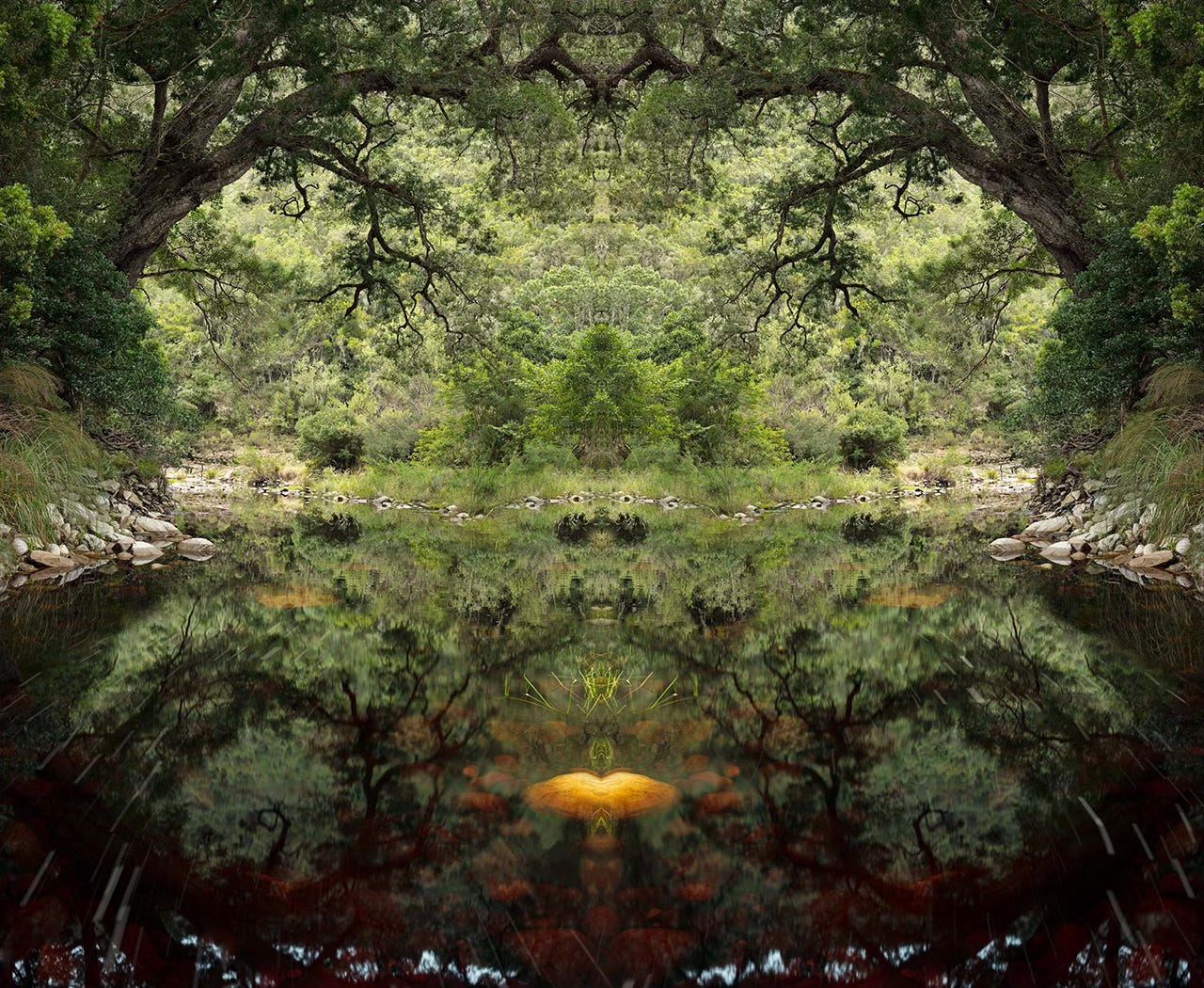The Ripple Effect of Denying Death
By Ignoring Death We've Disconnected From Life - The Real Reason You’re Afraid - Nature Can Cure Everything
Death denial isn’t just philosophical—it’s physical. It lives in the manicured lawns, the strip-lit hospital wards, the anti-ageing serums, and the relentless buzz of productivity.
“We live in a death phobic society.” (Stephen Jenkinson)
We’ve carefully edited death out of the frame. And in doing so, we’ve edited out something essential: our connection to life.
The Deathless Mirage of Modern Life
Let’s face it: our modern story about death is, to put it gently, skewed.
We live in societies that have paved over the natural world—replacing dirt with concrete, silence with alerts, and organic cycles with linear goals.
Urbanisation, industrialisation, and the cult of constant growth have done more than change our environments.
They’ve fundamentally altered our relationship with life and death.
Death has become a nuisance. An interruption. A glitch in the system. Something to avoid, to fear, to delay until absolutely necessary. And when it does arrive, most of us are left unprepared.
We weren’t taught to talk about it.
We weren’t taught to sit with it.
We weren’t taught to live with its presence.
Our fear of death is amplified by our detachment from nature. And without nature’s rhythms to guide us, we forget that death is part of life—not its opposite, but its completion.
Nature’s Forgotten Wisdom
But step outside the human bubble for a moment. Look to the forest, the ocean, the seasons, the soil.
In nature, death isn’t an enemy—it’s a cycle. Birth, growth, decay, rebirth. Over and over again.
A fallen tree becomes food for the forest floor. A decomposed body nourishes wildflowers. Even the darkness of winter is just a breath before spring.
Death is not failure. It’s transformation. It’s renewal. Not an end, but a sacred continuation of life’s larger story.
This isn’t abstract poetry—it’s ecological truth. The more we cut ourselves off from this rhythm, the more fearful and spiritually starved we become.
Cultures That Remembered
Historically, societies that lived closer to nature had a markedly different approach to death. It was honoured, revered, and accepted as a natural phase of existence.
The Torajans in Sulawesi delay funerals for months or years to honour the dead with gradual, communal mourning. The Balinese Ngaben cremation celebrates reincarnation with vibrant communal rites. Tibetan Buddhists practise sky burials—returning the body to nature in a direct, unflinching act of surrender. Welsh sin eaters once absorbed the symbolic sins of the dead to ease their journey beyond.
From sky burials to sacred cremations, from grave offerings to collective mourning, these rituals didn’t treat death as an interruption. They made space for it. They saw it as sacred.
Compare this to the way we hide death today—behind hospital curtains, euphemisms, and the endless scroll of distraction.
We’ve lost not just the language of death, but the courage to face it.
The Western Detour
In the modern West, our cultural myths—shaped by media, advertising, and the dogma of “success”—push death out of sight.
We’re sold a story of:
Eternal youth
Personal optimisation
Wealth as a substitute for meaning
And time as something we can “manage,” rather than something we surrender to
We seek longevity instead of depth. Achievement over alignment. But the more we resist death, the more disconnected we become—from nature, from spirit, from each other, and from ourselves.
And as a result, we remain disconnected from our purpose. The story of life becomes a performance, not a participation.
The Cost of Denial
This cultural fear doesn’t just affect our emotional landscape—it ripples through every area of life.
We medicalise and isolate the dying process
We pursue productivity over presence
We treat ageing as a flaw, rather than a blessing
We avoid hard conversations about loss, grief, and impermanence
The global reflection brought on by the shock of the COVID-19 pandemic underscored our vulnerabilities. It reminded us—sometimes brutally—how ill-prepared we are to face death, not just logistically, but emotionally and spiritually.
Our collective denial takes a toll: on our mental health, our relationships, and our ecological choices. It diminishes our ability to grieve, to feel, to act with urgency and care.
Changing the Narrative
So what if we chose another way?
What if we rebuilt the bridge between ourselves and the natural world—not just environmentally, but spiritually?
Nature offers the medicine: To sit with the cycles. To witness the falling and the flowering. To understand that letting go isn’t loss—it’s life in motion.
When we remember this, the fear of death doesn’t disappear.
But it softens. And in that softening, we come back to the present.
We begin to live—not to avoid death, but to honour life.
A Thought to Sit With
Where in your life are you resisting a natural ending?
What would it feel like to honour it instead of fearing it?
Hit reply—I’d love to hear your experience. Your thoughts might be exactly what someone else needs to read.
If this letter resonated, please share it with someone who might need it.
Let’s walk this path together, fearlessly.
Live Happy,
Hoppy
Want to go deeper? Read these Newsletters:
The Fear of Death - And What it is Really Telling Us
Abraham Lincoln: Legendary Wisdom on Life, Death and Purpose


